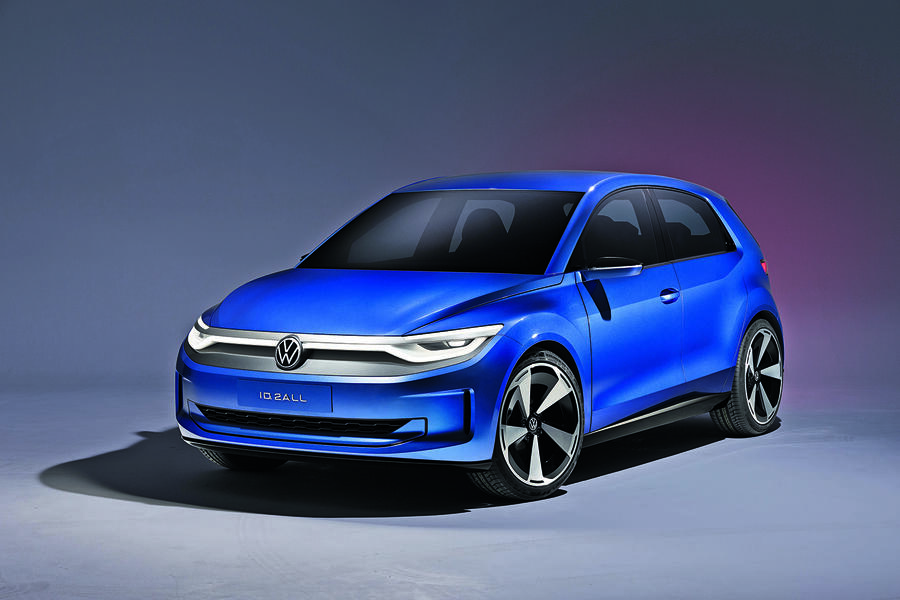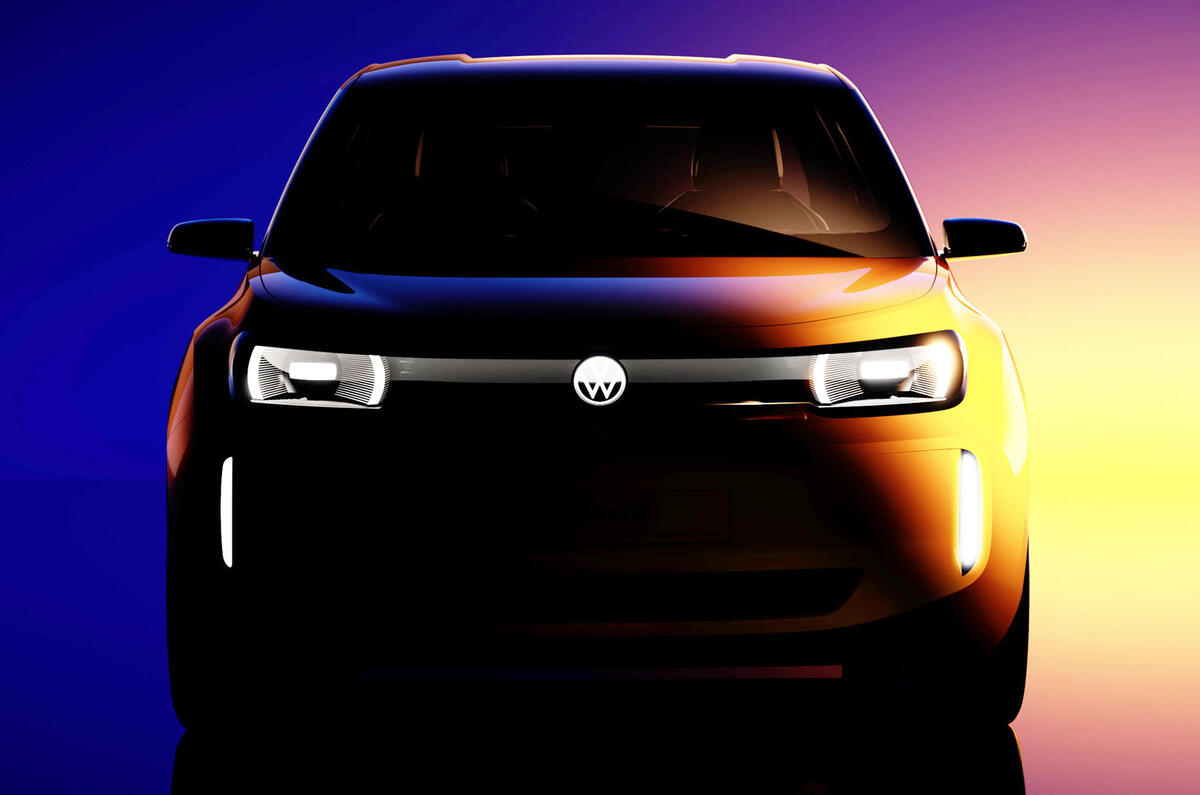Volkswagen will reveal a new concept next month which previews a £17k electric car to succeed the Up.
The new entry-level model, to be previewed by a show car early next month, is due to enter production in 2027 with a base price of "about €20,000", Volkswagen said, making it "attractive for a wide variety of user groups".
Known as the ID 1, the new Up successor is expected to share its fundamental platform with the Volkswagen Polo-sized ID 2 (a shortened 'Entry' version of the Volkswagen Group's modular MEB platform), but no technical details have yet been confirmed.
The first preview image suggests the new city car will have chunky, upright proportions and a distinctive new visage incorporating Volkswagen's new-look LED lighting signatures.
Volkswagen CEO Thomas Schäfer celebrated the new car's unveiling as a pivotal moment for the company: "An affordable, high-quality, and profitable electric Volkswagen from Europe for Europe: that's the Champions League of automotive engineering!”
It isn't yet confirmed whether the ID 1 will be built in Spain by the Volkswagen Group, alongside the ID 2 and its 'ID 2 X' crossover sibling, the Skoda Epiq compact SUV and the more sporting Cupra Raval.

Volkswagen technical development boss Kai Grünitz has previously suggested the new entry model will be an obvious successor to the successful Up city car in its conception, and will share some design elements and attributes.
“The 'ID 1' will be close to the Up regarding the usage of that car," he said. "There aren't so many possibilities to design a small vehicle for cities in terms of what it looks like. It will be a car that fits into the Volkswagen brand design DNA and functionality DNA but at a lower price.”
Grünitz stopped short of categorically confirming the return of the Up badge, but Volkswagen places great value on its longest-running and most successful names. Golf, Passat and Tiguan are all due to be retained in the EV era, with the suggestion that the brand’s numerical naming strategy for its ID EVs could be retired.









Join the debate
Add your comment
2027, why do VW take so long to react to or predict the market, Renault must be laughing at them.
You just think about things differently with an EV.
Isnt it interesting how some manufacturers are now becoming interested in this "afffordable" end of the market now, it is perhaps because they're struggling to sell all their premium, expensive electric models?
Mr Grunitz talks about loss leaders, and small profits for entry models subsidised by the higher margins on models further up the range as if its some new idea. Its what manufacturers used to do years ago, to attract new and younger drivers to the brand. Its called long term thinking, something that went out of the window when they started getting greedy.